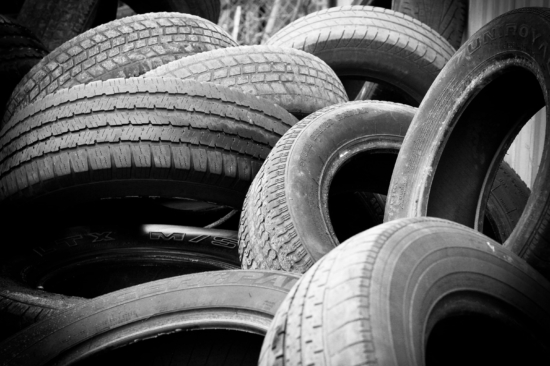UK’s largest tyre recycling gathering discusses exports to India, T8 exemptions and regulatory reform
 Over 50 businesses sent representatives to hear from the leading industry experts and analysts at a time that British tyre recycling stands “at a critical crossroads”
Over 50 businesses sent representatives to hear from the leading industry experts and analysts at a time that British tyre recycling stands “at a critical crossroads”
Companies from across the UK gathered in Leamington Spa for the TRA’s annual briefing day and conference on Wednesday 13 September. Over 50 businesses sent representatives to hear from the leading industry experts and analysts at a time that British tyre recycling stands “at a critical crossroads”. Many reportedly fear the imminent demise of the UK’S domestic tyre recycling industry if things do not change.
The event was kicked off by TRA secretary general, Peter Taylor OBE, who welcomed delegates and reminded his audience of the role they play in the wider the national circular economy agenda, before thanking Vaculug and KwikFit for their sponsorship making the gathering possible. Taylor also touched on a theme that was to dominate the day, the urgent need for regulatory reform.
Over the morning Astutus Research’s director Simon Hodson provided quantitative insights into the state of play of the tyre recycling industry at home and abroad. Hodson’s analysis of the data from across the UK and EU looked at the volume of end-of-life tyres from domestic and trade vehicles. The fact that volumes are yet to exceed the levels seen in 2019, following the sharp drop in 2020, was particularly notable. Hodson also provided the latest ELT figures; 3,050,000 MT across UK and EU with 50 per cent under EPR schemes. From this 1,850,000 MT are managed in European and 1,200,000 MT are exported with the primary markets being India/Pakistan, Turkey and Morocco.
“The TRA is calling for urgent regulatory reform to prevent further environmental damage, safeguard the British tyre recycling industry and promote sustainability” – TRA secretary general, Peter Taylor OBE
With Defra’s representative pulling their attendance at the last minute, it was left to the Environment Agency’s Howard Lieberman, Senior Advisor on Waste Treatment and Storage, to set out the regulatory situation in the UK today. Lieberman confirmed that T8 exemptions will come to an end, but he did not expect the legislation to pass quite as soon as this autumn. Other issues that the Environment Agency are looking at include: Dealer, broker, carrier registration and waste tracking to bring in whole-life accountability and responsibility. Lieberman acknowledged that the current exemptions regime is known to be widely abused and cause environmental damage.
Elsewhere delegates heard from Brian Kent, National Technical Director at Tarmac, on the success in the development of rubberised asphalt and its increasing use in the delivery of UK road projects.
Howard Lieberman, Senior Advisor on Waste Treatment and Storage, The Environment Agency (Photo: TRA)
Robert Weibold presented on the prospects for tyre pyrolysis. During his talk Weibold highlighted the rising standards and capability of legitimate and sophisticated pyrolysis factories, as well as a look at India’s back street batch pyrolysis operations that illicitly burn whole tyres, many of which are imported from Western countries.
TRA calls for ‘urgent regulatory reform’
In conclusion, despite the ongoing numbers of end-of-use tyres that must be dealt with, tyre recycling operators continue to face crucial challenges that threaten long term survival. As TRA representatives said, summing up the day, “without regulatory reform – which includes implementing the commitment to remove T8 exemptions, addressing the abuse of whole tyre exports abroad and introducing new rules for shred only export – Britain’s tyre recycling will come to an end. This will mean tyre mountains becoming part of the landscape, an expectation of fires and a reliance on export and foreign operators.”
Indeed, closing the conference Peter Taylor said: “The data shows UK tyre-recycling resilience is in decline and that decline will accelerate in the coming 18-24 months as things stand. UK tyre recycling is at the end of a lost decade. It is deeply frustrating for our members that our government appears to be incapable of introducing the simple ‘fixes’ needed to promote greater recycling circulatory and market resilience here in Britain.
“The TRA is calling for urgent regulatory reform to prevent further environmental damage, safeguard the British tyre recycling industry and promote sustainability. If Defra can focus for a moment and make the right, uncomplicated decisions, decisions that require no funding, in five years’ time, ministers may still be able to talk of a functioning UK tyre recycling industry.”
Peter Taylor OBE, Secretary General, TRA (Photo: TRA)




 Pirelli
Pirelli
Comments